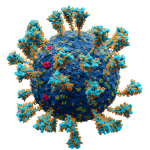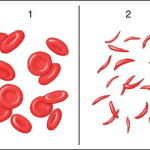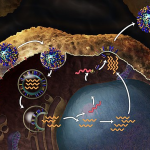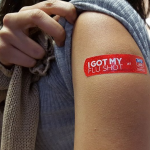Lars Larson and I discussed on his program the distinction between eradicating and controlling viruses and the complexities of virus management posed by different viral characteristics.
vaccines
Infectious disease experts predict another coronavirus pandemic in the future, so we need to be prepared. That will require both basic research to devise improved vaccines, including "universal" ones that will provide immunity against new variants, and cooperation from vaccine manufacturers.
Unlike previous public health emergencies, the COVID-19 pandemic had unmistakably partisan overtones. Politics exerted an unhealthy influence on how governments, scientists, reporters and ordinary Americans responded as SARS-CoV-2 swept across the world and upended our lives for the better part of four years. What went wrong and what can we learn from it?
We can create a public health infrastructure that is more resilient to outbreaks of viral illnesses by better understanding the nature of virus infections and how to address vaccine hesitancy.
The advances in medical practice since World War II have been stunning, and they continue apace. Here, I anticipate some that I think are likely to make significant contributions in the near future.
The advances in medical practice since World War II have been stunning, and they continue apace. Some of the existing and anticipated ones are discussed here and in Part 2.
Vaccination is a pillar of disease prevention, but Americans are under-vaccinated. We need a multi-pronged public education campaign with participation from politicians and celebrities of every stripe.
Jerry Rogers, the editor of both RealClearHealth.com and RealClearPolicy.com, moderated a discussion with several experts [1], including me, on various aspects of vaccines.
The level of respiratory illnesses in the U.S. is high and increasing. We are again experiencing a "tripledemic" of COVID-19, flu, and respiratory syncytial virus (RSV). As the peak incidence of those infections approaches, we should be vigilant and take appropriate precautions.
Politicians fail to understand that "gain of function" research on microorganisms can enhance public health preparedness.
Flu shots perform inconsistently because it's hard to anticipate which strains of the virus will be circulating in a given year. So far in 2023, it appears that the latest round of vaccines are working well. The FDA has determined that Sudafed PE doesn't work. Questions and accusations are flying as a result: why were we sold a useless decongestant in the first place? And more importantly, who's to blame for this public health blunder?
The process of selecting viruses for the yearly flu vaccines is complex and inexact. For the 2023-2024 flu season, there is reason to be optimistic that the vaccines will provide good protection.











